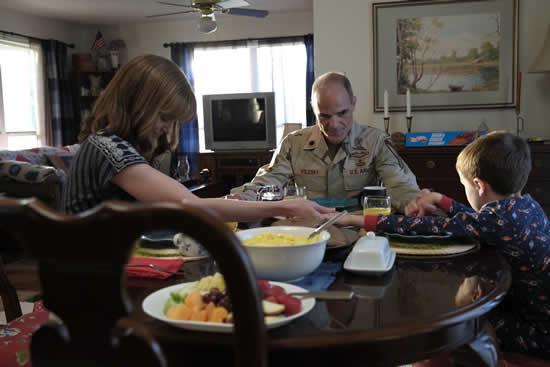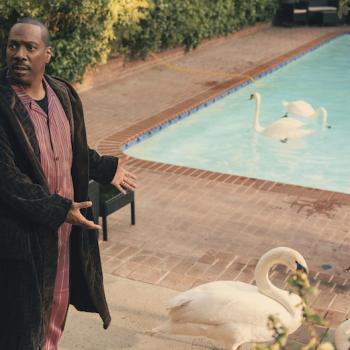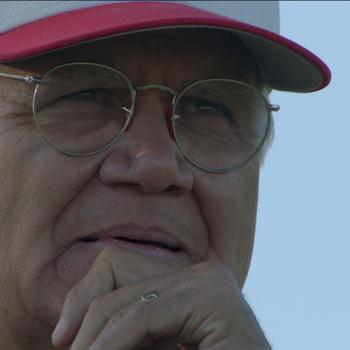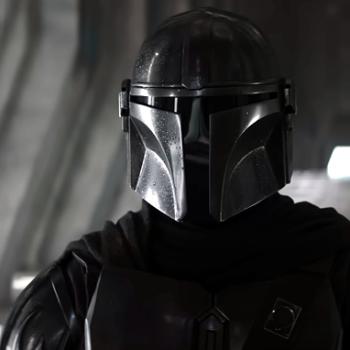
Sarah Wayne Callies, Michael Kelly and Braydon Baron on the set of The Long Road home at U.S. Military post, Fort Hood, Killeen, Texas. (Photo: National Geographic/Van Redin)
In the second hour of National Geographic’s miniseries The Long Road Home, Lt. Shane Aguero (E.J. Bonilla) leans over the bloodied shell of Sgt. Eddie Chen—the first fatality of what those in Sadr City, Iraq, would come to call Black Sunday.
“I don’t know if you were a religious man,” Aguero, crying, says. “We never really talked about that stuff. … But if it’s OK with you, I’d like to say a little prayer.”
That prayer gives Aguero, and us, pause. Narratively, it’s a breather between the first unexpected assault and the terrors yet to come. Emotionally, we’re allowed to reflect on Chen (played by Kenny Leu) and grapple with the reality that he’s gone. Spiritually, it plants a seed of hope—that even as Chen’s body lies torn and lifeless, part of him lives on.
“I pray that you may take him into Your arms, dear Lord,” Aguero prays. “Allow him entry into Your paradise that his soul may rest in peace.”
It, like most everything else in The Long Road Home, feels authentic.
The miniseries, which begins Nov. 7, gives us a gritty, sometimes brutal look at the reality of modern conflict. It humanizes its participants, both soldiers and civilians, and it reminds us that even when war is arguably necessary, it’s always terrible.













